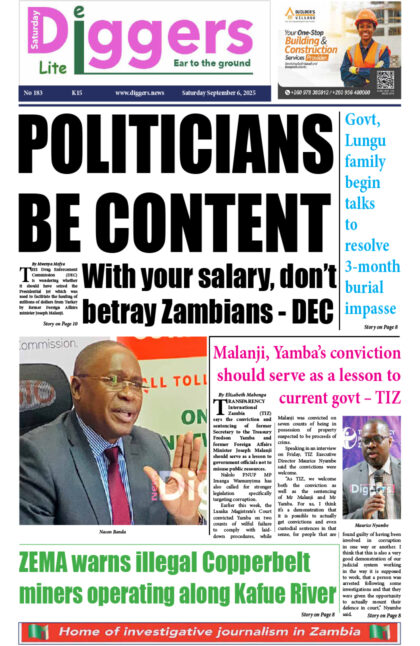ACTIONAID Zambia has commended government for cancelling its Double Tax Agreement (DTA) with Mauritius, saying such treaties have been found unbalanced and a source of tax evasion by most multinational companies.
A Double Tax Agreement is a legally-binding agreement between states, which governs the taxation of cross- border activities, such as investments by a resident of one State in another State and vice-versa.
Zambia has signed DTAs with different countries, among them Germany, Ireland, Norway, Sweden and Mauritius, but these treaties were mostly found to be unbalanced and a source of tax evasion, thereby denying the host countries the much-needed revenue.
It is against this background that government decided to cancel its DTA with Mauritius and welcoming government’s move, ActionAid Zambia country director Nalucha Ziba encouraged the Zambian government to take similar action over other unbalanced DTAs.
“For a long time, ActionAid has been campaigning for cancellation and re-negotiation of problematic DTAs Zambia has with different countries. In recent times, tax treaties have not only been found to be unbalanced, but also a source of tax evasion by most multinational companies, denying the host countries the much-needed revenue. For example, some DTAs provide for as low as 0-7 per cent tax rate, while others have no or weaker anti-abuse provisions. For some time now, ActionAid has been calling for revision and/or cancellation of regressive DTAs like the now-cancelled Zambia and Mauritius DTA,” Ziba stated.
“The DTA between Zambia and Mauritius provided for 0 per cent Withholding Tax (WHT) on technical fees paid for technical services. With this provision, a Mauritius-based multinational company would take advantage of such provisions and not pay any WHT on technical services, which is currently capped at 15 per cent. For example, if this company engaged a sister company from Mauritius to provide technical services at a cost of US $100 million, this company when making this payment (US $100 million) to a sister company, will not deduct any WHT. This implies that the entire US $100 million is untaxed! On the contrary, if the DTA provided for 15 per cent WHT on technical fees, then US $15 million would be deducted as Withholding Tax and remitted to the Zambia Revenue Authority (ZRA).”
Ziba also encouraged government to take some precautions before entering into other DTAs
“ActionAid conducted a study titled: ‘Sweet Nothings,’ which showed how Associated British Foods (ABF), operating in Zambia as Zambia Sugar Company, took advantage of the international tax agreement between Zambia and Ireland to avoid large tax payments. Zambia Sugar Company paid over US $47.6 million equivalent to about K209 billion for management services and purchases to a fellow subsidiary called: ‘Illovo Sugar Ireland’ between 2007 to 2012. However, the international tax agreement between Zambia and Ireland (before negotiation) exempted payment of WHT for management or consultancy services. By channelling this money (US $47.6million) through their Irish subsidiary, Zambia Sugar avoided paying an equivalent of US $7.4 million between 2007 to 2012,” recalled Ziba.
“It is against this background that we commend the government for the position taken and we wish to encourage government to take a similar position over other unbalanced DTAs. Furthermore, government should ensure that the following are put into consideration when re-negotiating for new DTAs: an impact assessment/cost-benefit analysis is done before they are signed and every five years, thereafter; they should not follow the OECD model Treaty, but develop their own model; the government should negotiate for favourable and/or fair DTA’s WHT rates (10 per cent-15 per cent), which will not only promote Foreign Direct Investment, but also ensure that government collects adequate tax revenue; and all treaties should be negotiated transparently, and draft versions made available to the public prior to signature.”
























